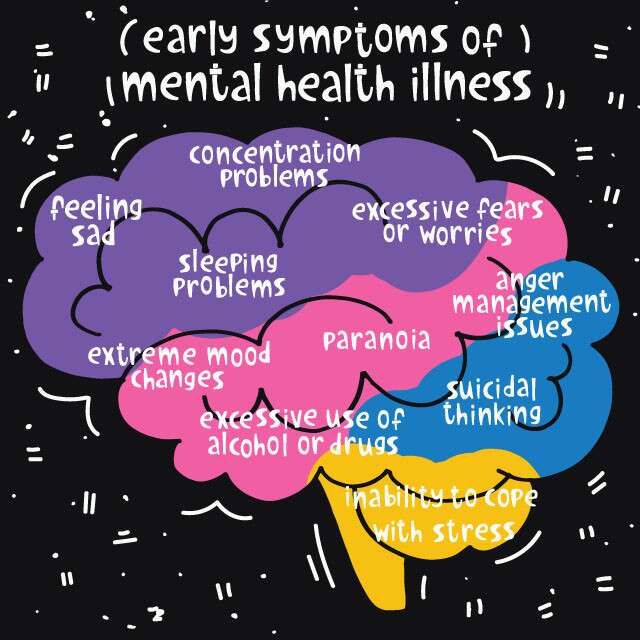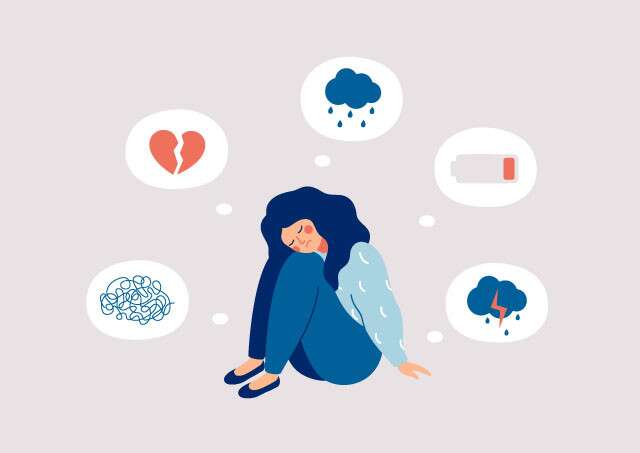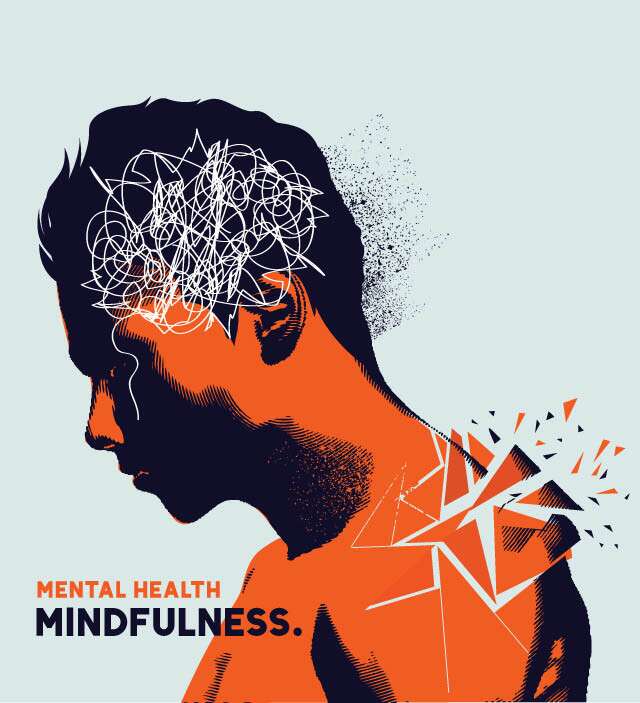
Image: Shutterstock
Authored by Dr Fabian Almeida, Consultant Psychiatrist, Fortis Hospital, Kalyan
With the background of the Covid-19 pandemic and the lockdown, national despair, suffering and angst associated with financial burdens, loss of jobs, loss of family members etc., the need for a deeper understanding of mental health issues have never been more relevant.

Image: Shutterstock
Here are 8 symptoms that quintessentially require a mental health evaluation, you must watch out for:
- Sleep: Sleep is one of the most significant biological indicators of mental and physical wellbeing. Decrease in sleep indicated by late onset of sleep, early awakening or restlessness during sleep and associated daytime drowsiness, could be the result of psychological problems like fear, anxiety, sadness or Post Traumatic Stress Disorder (PTSD). Alternatively, increased sleep patterns associated with lethargy and physical fatigue can also be the presenting complaint for an underlying psychiatric illness.
- Appetite: Change in appetite can be indicative of emotional stress, besides other systemic problems of the body. Decreased appetite is often associated with increased levels of anxiety and depression. Digestion problems, acidity and constipation are also frequently experienced. However, sometimes increased appetite and binge patterns of eating could also be evident. The eating disorders – anorexia, nervosa and bulimia are especially related to obsessive behavior of eating, dieting, over-eating and weight watching.

Image: Shutterstock
- Mood: Change in one’s thoughts and feelings inevitably influences the mood - bringing along persistent sadness, disconnect, excitement, over-elation, all of which, in significant intensity and duration, are reflective of emotional instability. A feeling of hopelessness, helplessness and worthlessness may take over. Mood swings, i.e. fluctuations in the mood that can range from very sad (depressive states) to very happy (manic or hypomanic states), varying in intensity, at different times of the day or week (referred to as Bipolar Disorder). Problems like Learning Disorder (LD) in children, Attention Deficit Hyperactivity Disorder (ADHD) in children and adults, can also contribute towards changes in mood.
- Thought disorders: The ability to receive, comprehend and respond to information from our environment is reflective of the smooth functioning of the brain, and its neuronal networks. When this is disrupted, bringing to the fore confusion, ambivalence, cognitive distortions and associated difficulties; it requires careful probing and further understanding. Baseless suspicion and fear, believing concretely that something is true in spite of evidence to the contrary (delusions), hearing of voices (hallucinations); are all part of thought disorders occurring in psychiatric illnesses (most commonly schizophrenia and delirium).
- Behavioral changes: These can be sudden or gradual i.e. the person becomes silent, sensitive or sedentary or else, emerging as argumentative, abusive or aggressive; and anywhere in-between. The shift from one’s regular behavior to something different with reference to self and the surroundings is the most alerting indication demanding further probing by the caregivers. Occasionally, gesticulations of the face, hands or legs; muttering to the self, may also be seen. Addictions - the start of, or further increase in, is also an important behavior change to be further evaluated. Personality disorders are particularly associated with frequent behavioral changes too.
- Work efficiency: The ability of a person to effectively balance their personal and academic/professional life may gradually show a breakdown, under increasing stress or mental health problems. This could both be “cause or consequence” of the problem at hand, hence professional intervention by a psychiatrist becomes mandatory, earlier the better!
- Relationship problems: When relationships that start off with great pomp and promise, begin to show signs of wear and tear, there is almost always psychological factors associated to it. Difficulties in adjustment and adaptability, lack of adequate understanding and empathy, intimacy issues, sexual incompatibility and others; are areas of concern and need sensitive evaluation and targeted therapy.
- Memory deficits: Fading of mental capacities, with regard to age and abilities, more often gradual than sudden, also necessitates further investigations and detailing. Depressive states, problems of attention and concentration, dementia, brain infection or injury—are some of the causes of evident memory deficits

Image: Shutterstock
Having outlined the most common aspects, necessitating further mental evaluation and support, it becomes the responsibility of every individual to further sensitize and sanitize our system, for the betterment of all involved. It is always important to believe – ‘this too shall come too shall pass’.
Also read: Expert Talk: Become Body Positive to Be Happy